- Home
- slideshows
- miscellaneous
- The incredible life of Elijah Cummings: How a sharecropper's son rose to become one of the fiercest Democrats who took on Trump
The incredible life of Elijah Cummings: How a sharecropper's son rose to become one of the fiercest Democrats who took on Trump
Elijah Cummings was born on January 18, 1951 in Baltimore, Maryland. He was the seventh child of South Carolinian sharecroppers, Robert Cummings Sr. and Ruth Elma Cummings. In grade school, a counselor told Cummings he was a poor learner and speaker, and that he should abandon any dream he had of being a lawyer.

When he was 11 years old, his civil rights roots showed for the first time when he rallied together with other children to try and integrate a swimming pool in Baltimore. Everyday for a week, as children tried to get into the pool, they were spat on and threatened. Cummings was cut by a bottle that was thrown at him. "The experience transformed my entire life," he said.

Source: AP News
When Cummings was 17, he met Larry Gibson as he looked for people to put into his high school's hall of fame. Gibson, an active member of the 1960s civil rights movement, became his mentor and later advised him to go to law school. They also worked on political campaigns together.
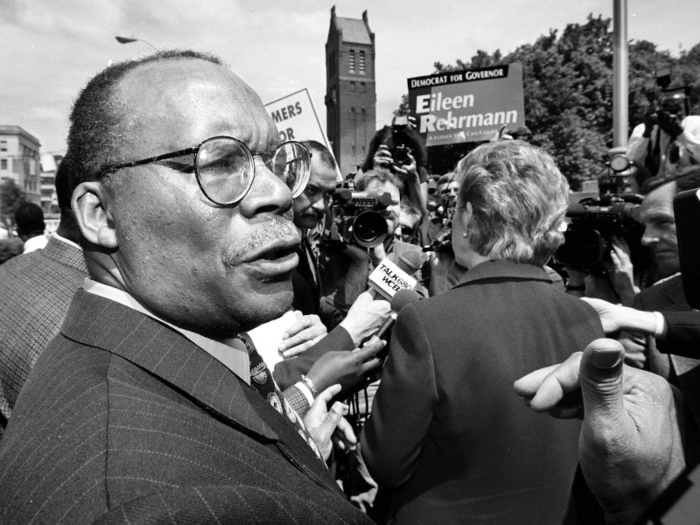
Sources: Baltimore Sun, Baltimore Sun
The school counselor had lit a fire in Cummings, and he sought to prove them wrong. By the time he made it to Howard University in 1969, he was excelling at his studies, getting Phi Beta Kappa honors for his political science degree and serving in student government.
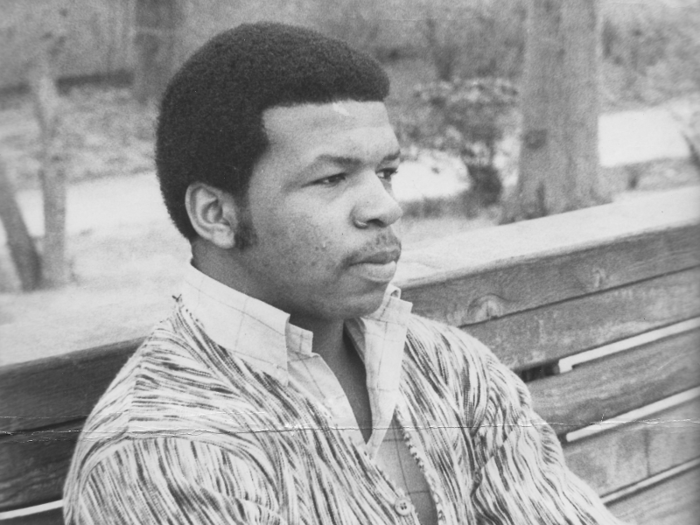
Sources: Baltimore Sun, AP News
In 1976, he passed the state bar after graduating from University of Maryland School of Law. He worked at a small law firm in Baltimore before setting up his own practice, working alongside two other lawyers.
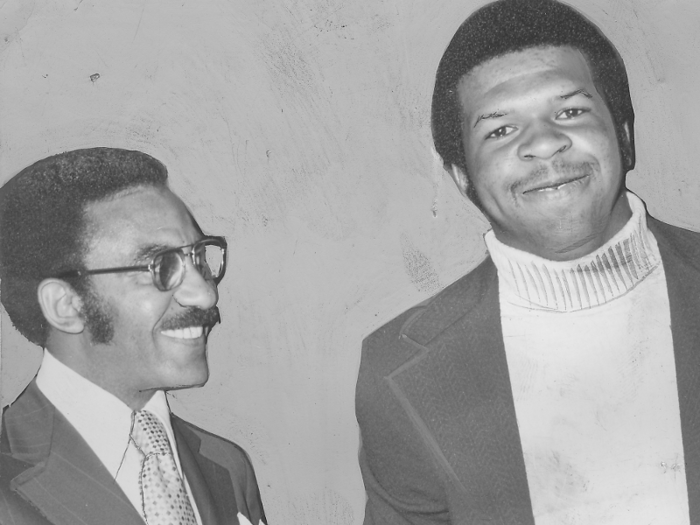
Sources: Baltimore Sun, AP News
In 1982, Cummings won the election for state delegate. He would serve in the Maryland General Assembly for 14 years, while continuing to work as a lawyer. He also became the first African American in Maryland become speaker pro tem.
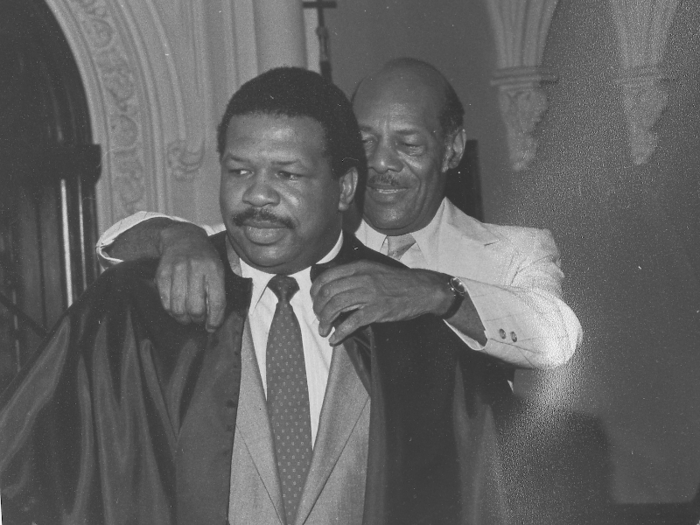
Sources: Baltimore Sun, The New York Times
Cummings credited former Maryland state Del. Lena Lee for starting his political career. She told him she wanted a woman to take her place, but told him, "you'll do."
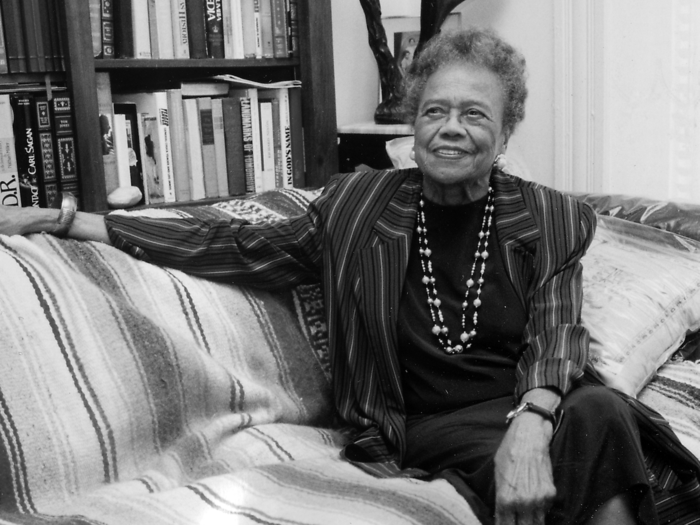
Sources: Washington Examiner, Baltimore Sun
And contrary to his elementary school advice, Cummings became one of the most persuasive speakers in the statehouse. The AP described how he began speaking slowly, developing his themes, and then getting more enthusiastic, until his speech seemed not unlike a religious sermon.
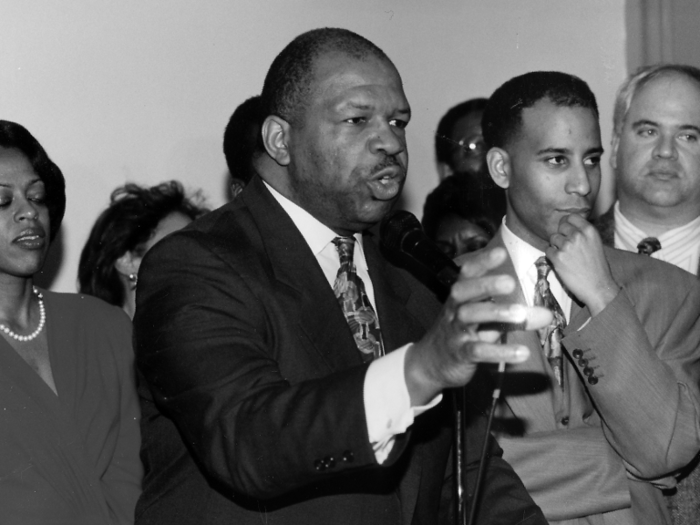
Sources: Baltimore Sun, AP News
During his time as a delegate, Cummings was responsible for banning inner-city billboard advertisements for alcohol and tobacco. It was the first prohibition in a large city in the US.
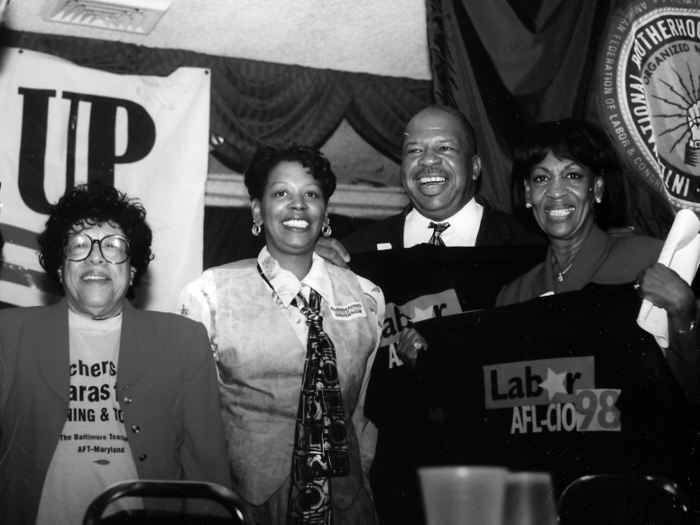
Source: AP News
In 1995, he ran for Maryland's 7th congressional district, which is most of West Baltimore and Howard County. He won the seat from former Rep. Kweisi Mfume, who left to lead the NAACP. Mfume told the Baltimore Sun, "Common law and experience teach us that politics change people — but Elijah was a person who changed politics – he put a human face on it — he made it real."
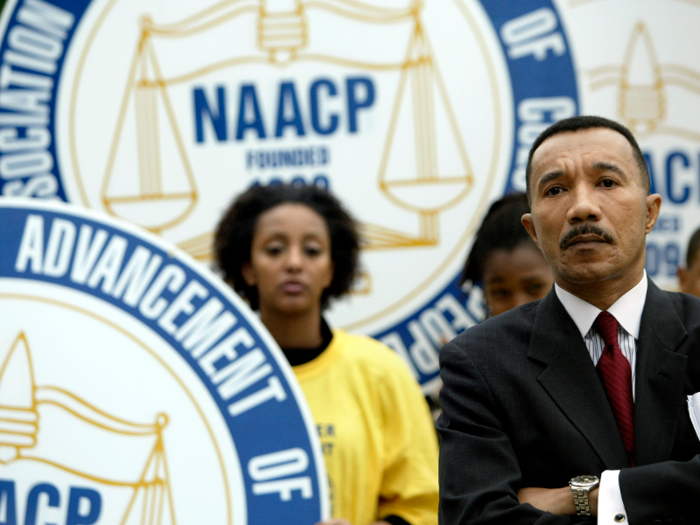
Sources: AP News, Baltimore Sun
After a month of serving in Washington, he was quick to notice the change in politics. "After coming from the state where, basically, you had a lot of people working together, it's clear that the lines are drawn here," he said at the time.
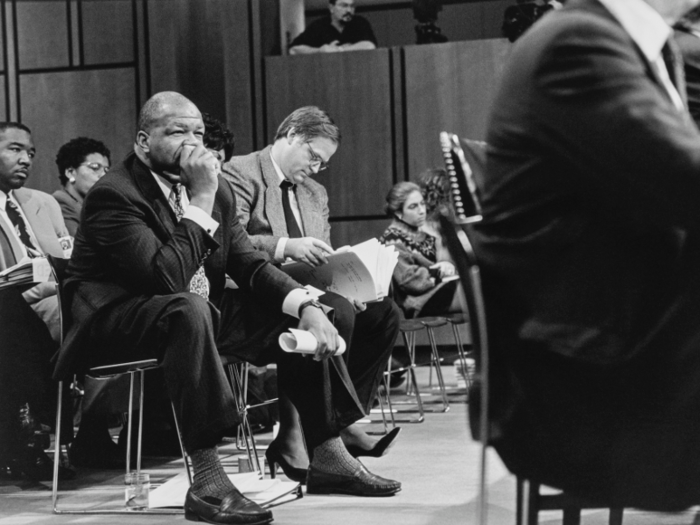
Source: AP News
Still, Cummings was popular with his constituents. He would go on to be re-elected 12 times, and never come close to losing his seat. He won with 75% of the vote in the most recent election.
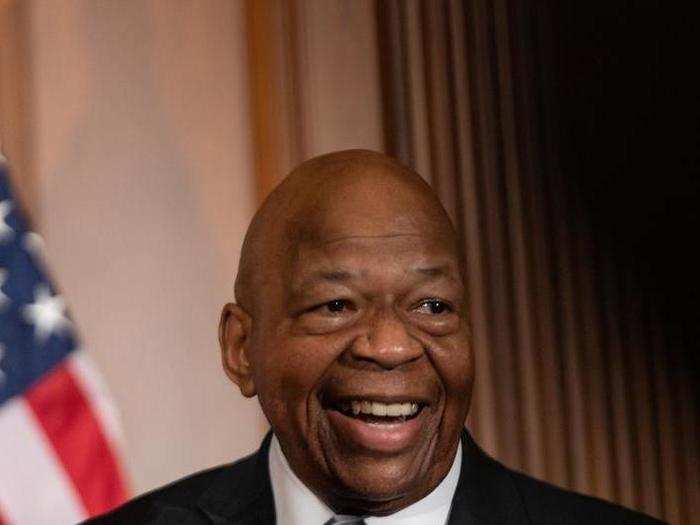
Source: CNN
From 2003 to 2004, Cummings chaired the Congressional Black Caucus, and did his best to put the group to the forefront of the national consciousness.
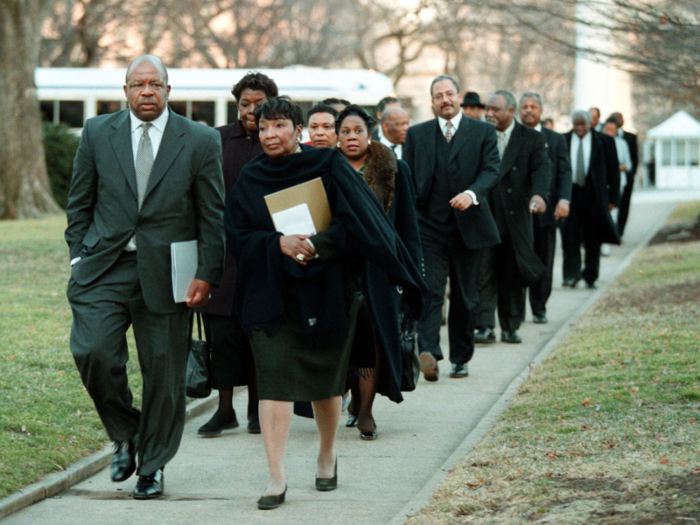
Source: AP News
He also campaigned vigorously for stricter gun control laws, and was a big advocate for trying to help people addicted to drugs. One of this long-term concerns was the high price of prescription drugs.
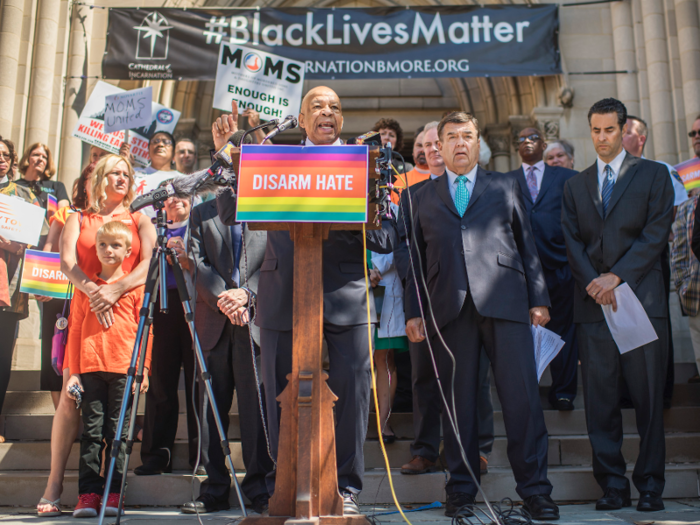
Sources: The New York Times, Baltimore Sun
Cummings was one of the earliest supporters of Barack Obama. He co-chaired his presidential campaign in Maryland in 2008. He said he went with his gut, and broke from the Democratic establishment who were backing Hilary Clinton, because he knew Obama was going to win.
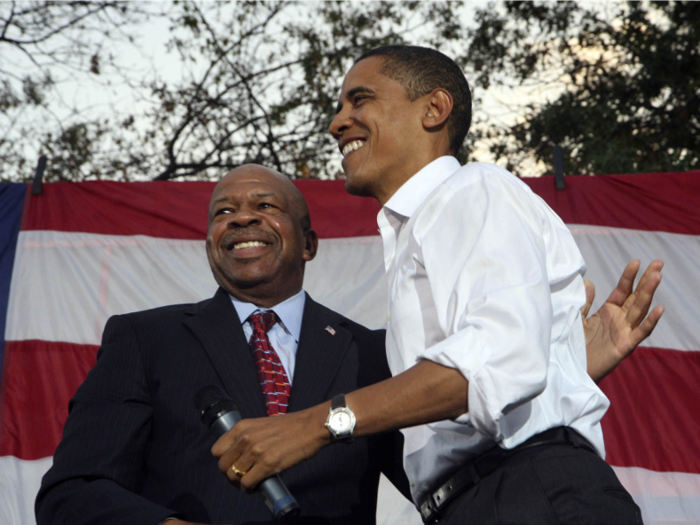
Sources: AP News, MotherJones, Baltimore Sun
Cummings might have been a Democrat through and through, but he was also known for having strong friendships outside of the party, including most notably with Rep. Mark Meadows, who leads the House Freedom Caucus, a conservative group.
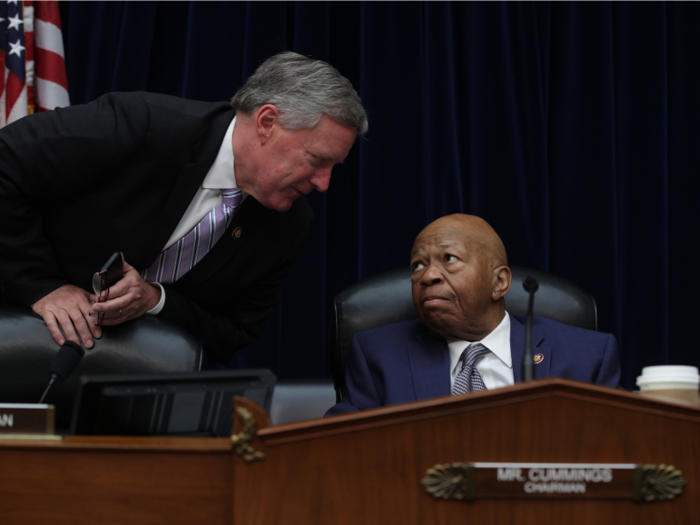
Source: The New York Times
In 2008, he married Maya Rockeymoore Cummings, who in 2018 was elected chairwoman of the Maryland Democratic Party. He had previously been married to Joyce Matthews.
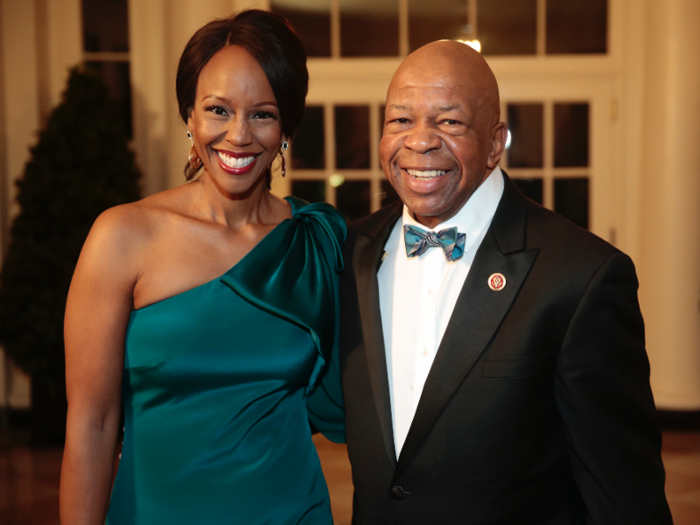
Source: Washington Post
Cummings was a religious man. He went to the New Psalmist Baptist Church, typically attending morning service every Sunday.
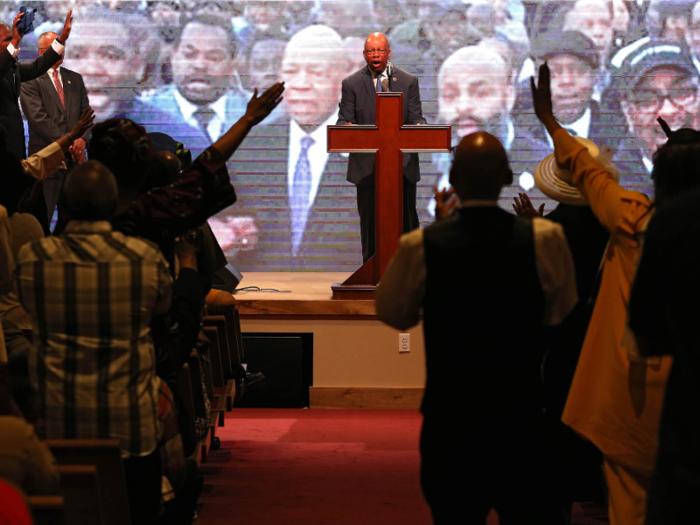
Source: Baltimore Sun
In 2015, Cummings made headlines when he took to Baltimore's streets to quell riots stemming from the death of Freddie Gray, a black resident who died after being arrested by police. Just hours after he had finished delivering the eulogy at Gray's funeral, Cummings was urging people to stop rioting and go home.
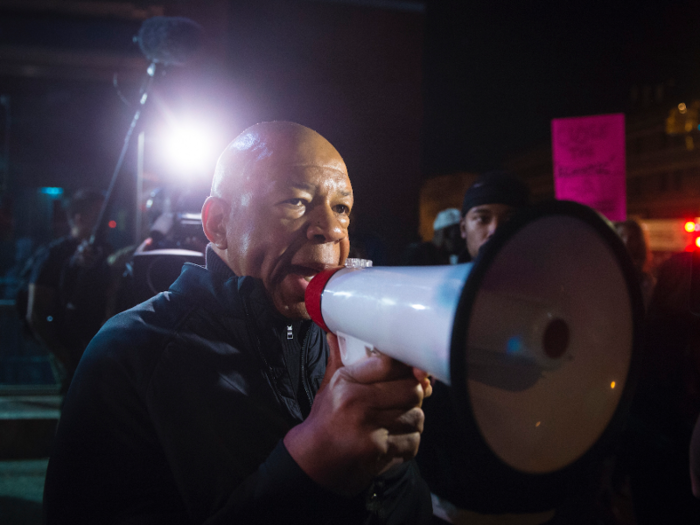
Source: AP News, The New York Times
In 2016, he was the senior Democrat on the House Benghazi Committee, which he later said, was "nothing more than a taxpayer-funded effort to bring harm to Hillary Clinton’s campaign."
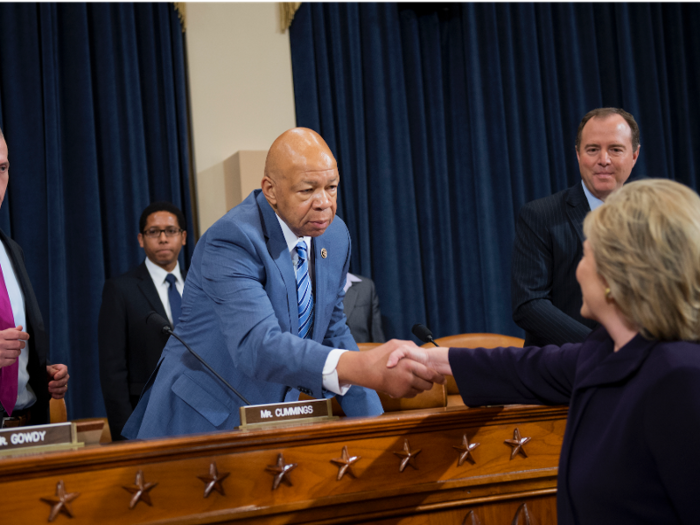
Source: AP News
When Trump was elected, Cummings, known for booming and compelling speeches, became one of the most effective Democrats taking on the president.
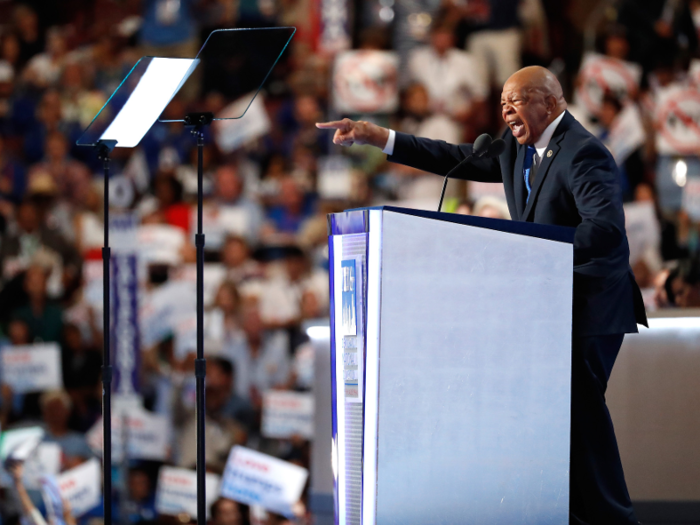
Source: Politico
In 2017, he had his only ever one-on-one sit down with Trump. He told him, "Mr. President, you're now 70-something, I'm 60-something. Very soon you and I will be dancing with the angels. The thing that you and I need to do is figure out what we can do — what present can we bring to generations unborn?"
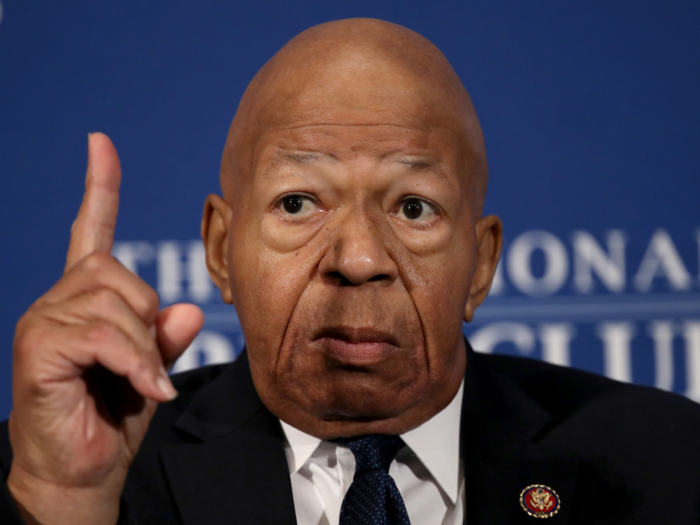
Source: Baltimore Sun
In 2017, Cummings spent two months in the hospital after there were complications with his heart valve replacement. He thought he was "living on borrowed time." He began to use a motorized wheelchair or walking stick to get around the Capitol after that.
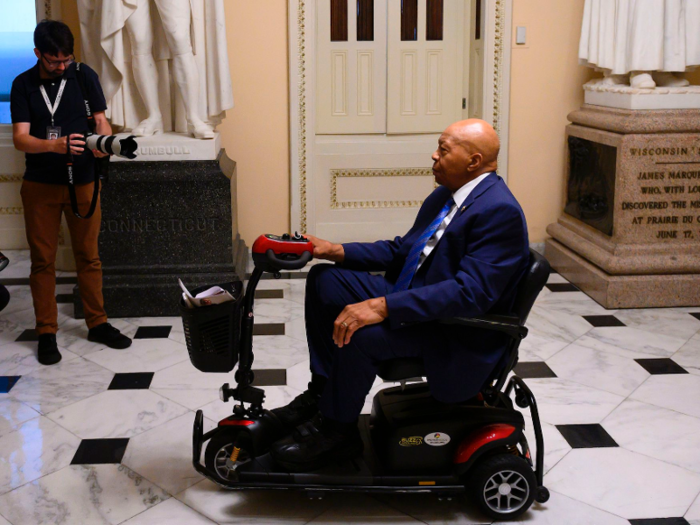
Source: The New York Times
He and Trump tangled again in July 2019, when the president called his district "rodent-infested" and a place where "no human being would want to live" after Cummings criticized his administration's handling of illegal migrants. Cummings responded saying while it was his constitutional duty to oversee the Executive Branch, it was his moral duty to fight for his constituents.
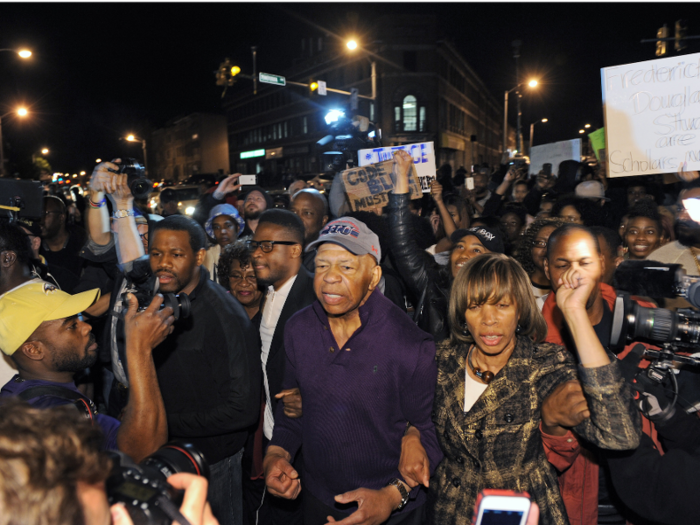
Sources: AP News, Washington Examiner
Cummings became chairman of the House Committee on Oversight and Reform in January 2019, giving him the power to investigate Trump. Despite seeming hesitant at first, he led the charge. He was one of three committee leaders guiding the impeachment inquiry.
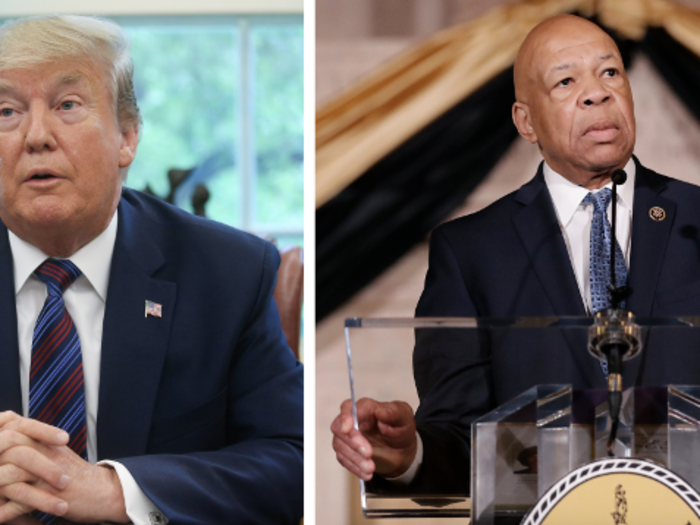
Sources: The New York Times, Politico
And true to his values, Cummings spent his final months fighting Trump and his attempts to block any investigations. He's seen here convening one of Congress' most explosive hearings against Trump's former personal lawyer Michael Cohen. Cummings said Trump was worse than Nixon during Watergate.
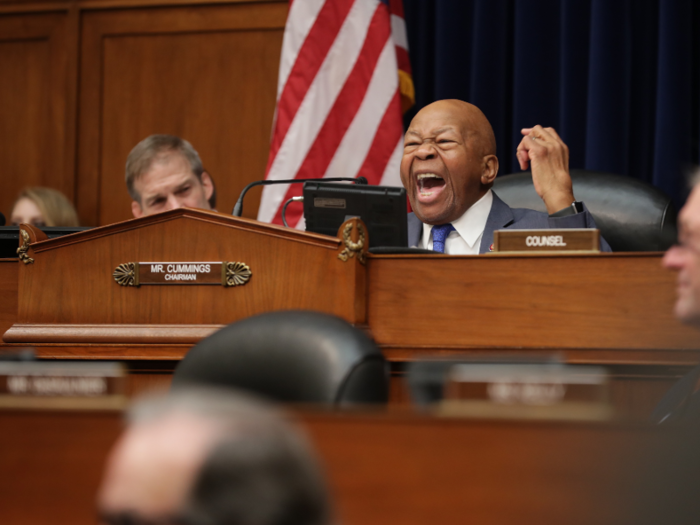
Sources: The New York Times, AP News, Politico
On October 17, 2019, Cummings died from longstanding health problems. He was 68 years old.
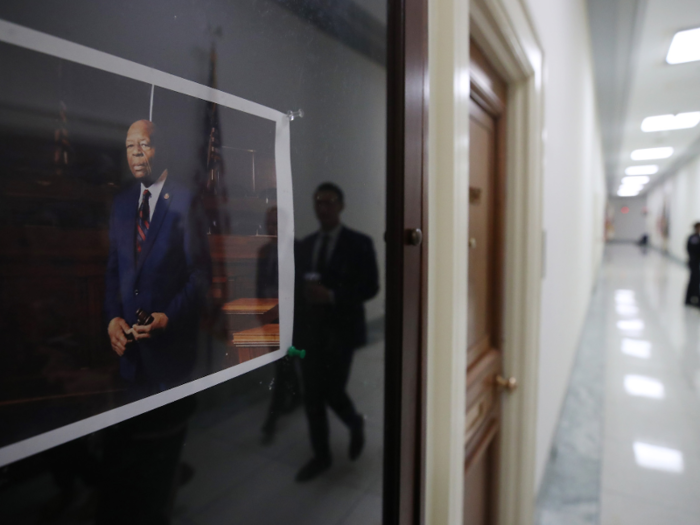
His wife Maya said in a statement that it was an honor to walk by his side. "He worked until his last breath, because he believed our democracy was the highest and best expression of our collective humanity, and that our nation’s diversity was our promise, not our problem."
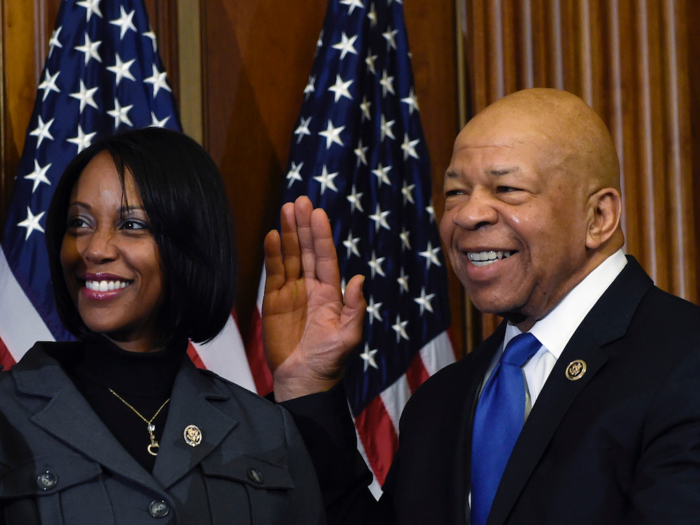
Popular Right Now
Popular Keywords
Advertisement